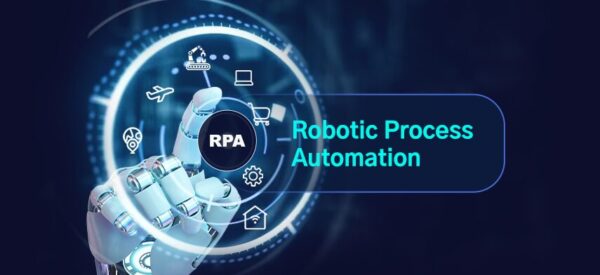Transforming Business Efficiency: The Power of Robotic Process Automation RPA
In today’s fast-paced digital landscape, the drive for efficiency and innovation is relentless. Robotic Process Automation (RPA) is emerging as a pivotal technology, reshaping how businesses operate and transforming routine tasks into streamlined processes. Here’s a closer look at RPA, its transformative benefits, and how it’s set to redefine various industries.
What Exactly is Robotic Process Automation RPA?
Robotic Process Automation (RPA) refers to the use of software robots, or “bots,” to automate repetitive, rule-based tasks typically carried out by humans. These tasks can range from simple data entry to more complex processes that span multiple systems. Unlike traditional automation methods, which often require extensive programming, RPA is designed for ease of implementation, making it a practical solution for organizations of all sizes.
The Transformative Benefits of RPA:
- Boosted Efficiency: RPA bots operate around the clock, handling tasks with unparalleled speed and accuracy. This constant operation leads to dramatic increases in productivity, reduces processing times, and minimizes human error.
- Cost Reduction: By automating routine tasks, organizations can cut down on labor costs and reduce operational expenses. The increased accuracy and efficiency of bots contribute to significant cost savings across various functions.
- Superior Accuracy: Bots execute tasks with high precision, reducing the likelihood of errors associated with manual input. This accuracy is crucial for maintaining data integrity and ensuring compliance with regulations.
- Scalable Solutions: RPA solutions offer remarkable scalability. Businesses can easily deploy additional bots to manage increased workloads, accommodating fluctuations in demand without the need for expanding the workforce.
- Enhanced Employee Experience: Automating mundane tasks frees employees to engage in more strategic and creative work. This shift can boost job satisfaction and foster a more engaged and motivated workforce.

RPA in Practice: How Different Sectors Benefit
- Finance: In the finance industry, RPA automates processes like transaction handling, compliance reporting, and customer onboarding. Bots streamline account reconciliation, claims processing, and ensure adherence to regulatory standards.
- Healthcare: For the healthcare sector, RPA simplifies administrative tasks such as managing patient records, scheduling appointments, and processing billing. This automation enhances operational efficiency and allows healthcare professionals to focus on patient care.
- Retail: Retailers use RPA for tasks like inventory management, order fulfillment, and customer support. Bots can monitor stock levels, process orders in real time, and handle customer queries, improving the overall shopping experience.
- Human Resources: In HR, RPA automates employee onboarding, payroll management, and benefits administration. By reducing administrative burdens, HR teams can ensure timely and accurate processing of employee-related tasks.
- Manufacturing: RPA optimizes supply chain operations, production scheduling, and quality control in manufacturing. Automating these processes enhances efficiency, reduces downtime, and drives overall productivity.
Looking Ahead: Emerging Trends in RPA
The future of RPA is filled with promise and innovation. Key trends to watch include:
- AI Integration: The fusion of RPA with Artificial Intelligence (AI) will enable more advanced automation capabilities, including cognitive functions like decision-making and natural language understanding.
- Broader Adoption: As RPA technology matures, its applications are expected to expand into new sectors and business functions, further driving efficiency and innovation.
- User-Friendly Interfaces: Advancements in RPA interfaces will make the technology more accessible, allowing businesses to easily configure and manage their automation solutions.
- Focus on Security and Compliance: With the growing prevalence of RPA, ensuring robust security and compliance measures will become increasingly important, particularly in managing sensitive data and adhering to regulatory standards.
Conclusion:
Robotic Process Automation is not just a trend—it’s a revolutionary technology that’s redefining business operations. By automating repetitive tasks and driving efficiency, RPA enables organizations to focus on strategic initiatives and innovation. As technology continues to advance, the potential of RPA to drive transformation and unlock new opportunities is boundless. Embrace RPA today and discover how it can propel your business into the future.




